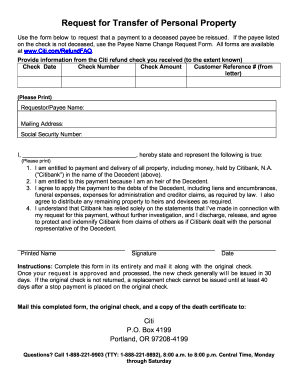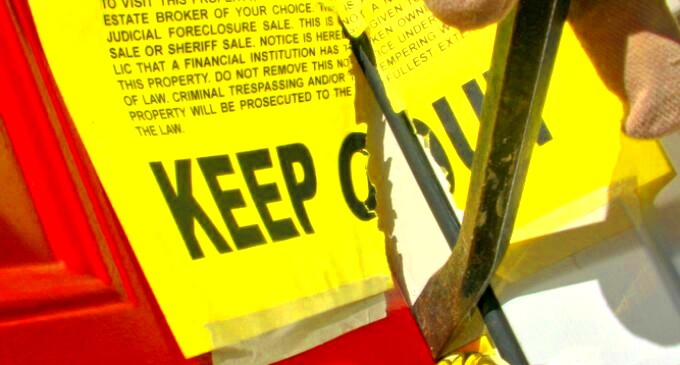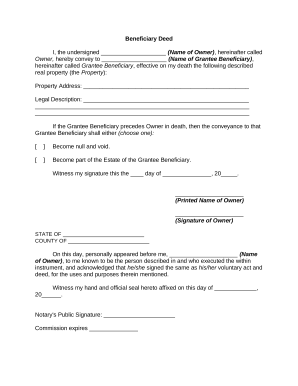Louisiana Repossession Laws: What to Expect
Repossession is a term many people dread, especially when it involves losing valuable property. In Louisiana, repossession refers to the process where a lender takes back property, usually after the borrower fails to make required payments. This can happen with various assets, such as cars, boats, and even personal property. Understanding the basics of repossession can help you prepare and protect your rights.
In Louisiana, repossession laws aim to balance the interests of both lenders and borrowers. Lenders want to recover their investments, while borrowers deserve protection against unfair practices. It’s crucial to know your rights and the legal steps involved in the repossession process.
Grounds for Repossession in Louisiana

There are specific reasons a lender can initiate repossession in Louisiana. Here are the main grounds:
- Default on Payment: Failing to make timely payments as agreed in the loan contract is the most common reason.
- Violation of Contract Terms: Breaking any terms outlined in the loan agreement can lead to repossession.
- Fraudulent Information: Providing false information during the loan application can also trigger repossession.
It’s essential to communicate with your lender if you are facing financial difficulties. They may offer solutions to avoid repossession.
Notice Requirements Before Repossession

Before a lender can repossess your property in Louisiana, they must follow specific notice requirements. These requirements are designed to give you a fair chance to address the situation. Here’s what you need to know:
- Written Notice: Most lenders must send a written notice informing you of the default and intent to repossess.
- Opportunity to Cure: You typically have a set period to catch up on missed payments or rectify any violations.
- Personal Service: In some cases, the notice may need to be delivered personally to you.
Understanding these notice requirements can help you take timely action to prevent repossession. If you do not receive proper notice, you may have legal grounds to contest the repossession.
Types of Repossession Procedures in Louisiana
In Louisiana, there are several procedures that lenders can follow to repossess property. Understanding these procedures can help you navigate the situation more effectively. The type of repossession procedure typically depends on the nature of the loan and the asset involved. Here are the main types:
- Self-Help Repossession: In many cases, lenders may use self-help methods to recover property. This means they can take back the asset without going to court, as long as they do not breach the peace. For example, a tow truck can pick up a car from a parking lot, provided they do so without causing a disturbance.
- Court-Ordered Repossession: If self-help is not possible or if the situation is complex, lenders may seek a court order for repossession. This requires filing a lawsuit and obtaining a judgment that allows them to reclaim the asset legally.
- Judicial vs. Non-Judicial Repossession: Louisiana allows for both judicial and non-judicial repossession procedures. Judicial repossession involves court proceedings, while non-judicial repossession allows lenders to reclaim property without court intervention, as long as they follow the proper legal steps.
Knowing the type of repossession procedure that may apply to your situation can help you prepare and respond appropriately.
Your Rights During the Repossession Process
When facing repossession, it’s essential to know your rights as a borrower. Louisiana law provides several protections to ensure that repossession is conducted fairly and legally. Here’s what you should be aware of:
- Right to Notice: You have the right to receive proper notice of default and repossession. This notice must inform you of your rights and options.
- Right to Peaceful Repossession: If the lender is using self-help methods, they must do so peacefully. They cannot use force or threaten you.
- Right to Redeem Property: In some cases, you can reclaim your property by paying off the debt, including any additional fees or costs associated with the repossession.
- Right to Contest Repossession: If you believe the repossession is wrongful, you have the right to challenge it in court.
Being aware of your rights can empower you to take action and seek legal help if necessary. Don’t hesitate to consult with a lawyer if you feel your rights are being violated.
Post-Repossession Options for Debtors
If your property has been repossessed, it’s not the end of the road. Louisiana law provides several options for debtors after repossession. Understanding these options can help you regain control of your financial situation:
- Redemption: You may have the opportunity to redeem your property by paying the total amount owed, including any repossession fees. This option is time-sensitive, so act quickly if it’s available.
- Negotiating with Lenders: Reach out to your lender to discuss possible solutions. They may be willing to work out a payment plan or offer alternatives to help you recover the asset.
- Seeking Legal Help: If you believe the repossession was unjust, consult with a lawyer to explore your legal options. You might be able to file a lawsuit or negotiate a settlement.
- Understanding Your Credit Impact: Be aware that repossession can affect your credit score. Consider taking steps to rebuild your credit after repossession, such as paying bills on time and monitoring your credit report.
Having a plan after repossession can help you move forward and regain your financial footing.
Impact of Repossession on Credit Score
Repossession can have a significant impact on your credit score, and understanding this effect is crucial for your financial future. When a lender repossesses an asset, it indicates to credit agencies that you have failed to meet your financial obligations. This can lead to a drop in your credit score, making it harder to secure loans, credit cards, or even rental agreements in the future.
The exact impact on your credit score depends on various factors, including:
- Severity of the Default: A single repossession can cause a substantial decrease in your score, especially if you had a previously good credit history.
- Timing of Payments: If you were consistently late on payments leading up to the repossession, this can further lower your score.
- Current Credit Status: If you already had a low score before the repossession, the impact might be less severe.
Generally, a repossession can remain on your credit report for up to seven years, but its effect on your score may lessen over time as you make positive financial choices. It’s essential to monitor your credit regularly and work on improving it after a repossession by paying bills on time and managing debts wisely.
Legal Assistance for Repossession Issues
Facing repossession can be stressful, but you don’t have to navigate this situation alone. Seeking legal assistance can provide you with the knowledge and support needed to protect your rights. Here’s how legal help can assist you:
- Understanding Your Rights: A lawyer can explain your rights under Louisiana law and help you understand the repossession process.
- Negotiating with Lenders: An attorney can negotiate on your behalf with lenders to find solutions, such as loan modifications or repayment plans.
- Challenging Unlawful Repossession: If you believe the repossession was wrongful or if proper procedures were not followed, a lawyer can help you contest it in court.
- Post-Repossession Guidance: After repossession, legal counsel can guide you through your options, including redemption and rebuilding your credit.
Don’t hesitate to reach out to a qualified attorney who specializes in consumer law. They can provide you with valuable advice and representation throughout the repossession process.
FAQs
Having questions about repossession is natural, and it’s important to find clear answers. Here are some frequently asked questions regarding repossession in Louisiana:
- What should I do if I receive a repossession notice?
Act quickly. Review the notice, understand your rights, and consider contacting your lender to discuss options. - Can lenders repossess my property without going to court?
Yes, in many cases, lenders can use self-help methods for repossession as long as they do not breach the peace. - How long does repossession stay on my credit report?
A repossession can stay on your credit report for up to seven years. - Can I get my property back after repossession?
Yes, you may have the option to redeem your property by paying off the debt, but time limits may apply.
If you have more questions or need assistance, consider consulting a legal professional who can help clarify your specific situation.
Conclusion
Understanding repossession laws and your rights in Louisiana is essential for navigating this challenging situation. Whether you are facing the possibility of repossession or dealing with the aftermath, being informed can make a significant difference. Remember that you have rights, including the right to receive notice, the right to redeem your property, and the right to seek legal assistance. If repossession does occur, explore your options and consider negotiating with your lender to find a suitable resolution. By taking proactive steps, you can protect your financial future and work towards rebuilding your credit. Don’t hesitate to reach out for legal help if needed, as this can provide you with valuable guidance and support during a difficult time.


